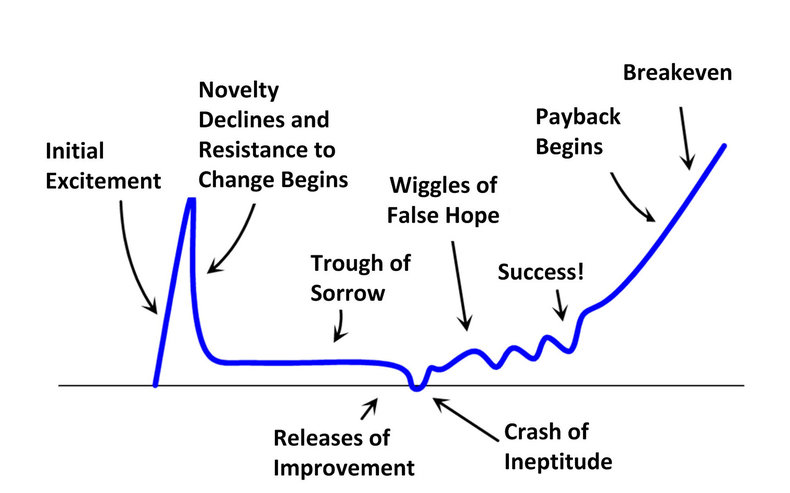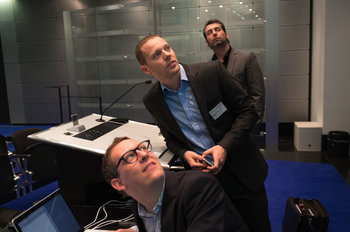|
| |
Initial excitement is the tendency for an organization to initially embrace a program of aggressive change. New ideas are exciting and initiatives are often kicked off with inspirational speeches and optimistic predictions. Resistance to change is the well known tendency for organizations to both openly and passively resist change that disrupts the status quo. In many cases, resistance to change doesn't appear during the period of initial excitement but comes later when the novelty of a new approach wears off, work begins and problems start popping up. Individuals begin to see how a change will affect them personally and excitement gives way to resistance. Change management techniques designed to reduce resistance to change are often heavily focused on the launch of a new initiative. This may miss the mark as resistance only appears later.|
| Initial Excitement | Resistance To Change | Definition | The tendency for a program of change to be initially embraced due to its novelty or the optimistic predictions of leaders. | The tendency for organizations to openly and passively resist change due to its disruption of systems, norms and habits. |
Change Management
This is the complete list of articles we have written about change management.
If you enjoyed this page, please consider bookmarking Simplicable.
A list of change management first principles.
An overview of organizational change fatigue.
The definition of resistance to change with examples.
A definition of restructuring with examples.
The common types of implementation.
A definition of internal stakeholder with examples.
A definition of change agent with examples.
A list of common change management metrics.
The definition of status quo with examples.
A list of common project risks.
A list of basic project management techniques.
A definition of workaround with examples.
A list of project branding techniques.
An overview of project stakeholder management with examples.
A definition of action plan with examples.
The primary types of cost overrun.
The definition of document control with examples.
A guide to project oversight.
A definition of design driven development with examples.
TrendingThe most popular articles on Simplicable in the past day.
Recent posts or updates on Simplicable.
Site Map
© 2010-2023 Simplicable. All Rights Reserved. Reproduction of materials found on this site, in any form, without explicit permission is prohibited.
View credits & copyrights or citation information for this page.
|































